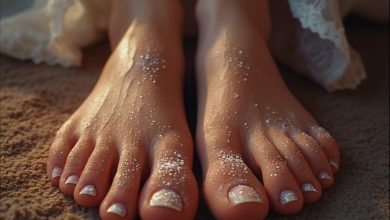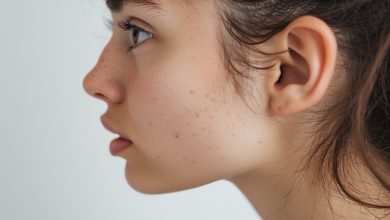
Let’s talk about something that’s been buzzing across fitness forums, Reddit threads, and health blogs—taking creatine without working out.
You’ve probably heard that creatine is the holy grail for gym-goers. But what if you’re not hitting the gym every day—or at all? Is it still okay to take it? Can it still benefit you? Or could it even be harmful?

In this deep dive, we’ll uncover the real effects of creatine when you’re not working out. If you’re a beginner, someone on a rest day, or just curious, this article is your go-to resource. Expect eye-opening truths, science-backed answers, and no fluff.
✅ Stick around until the end—we’ll share expert advice and bonus tips to maximize your results safely!
What Is Creatine and Why Is It So Popular?
Before we get into the nitty-gritty of creatine without working out, let’s understand what creatine is.
Creatine is a natural compound found in your muscles. It helps your body produce adenosine triphosphate (ATP)—a quick source of energy used during high-intensity workouts or short bursts of activity.
That’s why athletes and gym lovers swear by it. It improves strength, muscle mass, endurance, and recovery.
But the real question is:
Do these benefits still apply if you’re not exercising?
1. Yes, Creatine Still Works—Even Without Exercise
Here’s a shocking fact: creatine doesn’t become useless if you’re sedentary.
While its muscle-boosting power is most effective when paired with resistance training, some benefits remain even when you’re not working out:
-
Improved cognitive function
-
Better energy production for daily tasks
-
Neuroprotection for aging adults
-
Increased water retention in muscles (temporarily)
A 2021 study from the Journal of Clinical Psychopharmacology shows that creatine may improve brain performance, especially in tasks requiring short-term memory and quick thinking—even in non-athletic individuals.
2. You Might Experience Temporary Water Weight Gain
Let’s keep it real.
Taking creatine without working out can cause your muscles to retain water. This doesn’t mean fat gain—it’s just intracellular water retention, which can:
-
Make muscles look a bit fuller
-
Add 2-5 pounds of weight on the scale (not fat)
-
Sometimes cause bloating for beginners
But don’t panic—this water retention is normal and often temporary.
To manage it, drink more water and avoid processed, salty foods that can worsen bloating.
3. Creatine May Improve Brain Health
You don’t have to be lifting heavy to get a brain boost.
Multiple studies, including one from Frontiers in Nutrition, highlight creatine’s role in neurological support. Some benefits include:
-
Reduced mental fatigue
-
Better reaction time
-
Potential support for depression and anxiety
If you’re a student, remote worker, gamer, or just someone who wants better focus, creatine without working out can still deliver.
4. No Workout? No Problem—Creatine May Still Preserve Muscle
Even if you’re on a break, creatine may help preserve lean muscle mass.
Here’s why:
Creatine increases muscle cell hydration, which signals the body to preserve muscle rather than break it down. It also helps prevent muscle wasting during periods of inactivity—especially helpful if you’re recovering from an injury or surgery.
According to the National Institutes of Health, creatine has shown promise in supporting muscle strength maintenance in older adults and those with muscle-wasting conditions.
5. Taking Creatine Without Exercise? Watch Your Diet Closely
Here’s the tricky part.
If you’re not burning off extra energy through workouts, but still supplementing with creatine, you’ll need to be mindful of your overall diet.
Too many calories + no workouts = possible fat gain. Even though creatine itself doesn’t contain calories, it can increase appetite in some people.
Tips to keep your diet balanced:
-
Stick to lean proteins and complex carbs
-
Stay hydrated
-
Don’t exceed the recommended creatine dose (3–5 grams daily)
6. Creatine Can Help With Recovery and Inflammation
Even on rest days or during injury recovery, creatine without working out can be beneficial.
According to the Journal of Strength and Conditioning Research, creatine may reduce muscle inflammation and speed up healing post-injury.
Whether you’re recovering from a tough workout or just sore from life, creatine might help you bounce back faster.
7. There Are Some Side Effects—If You’re Not Careful
Creatine is generally safe, but here’s the deal: Don’t go overboard.
Some people experience:
-
Mild digestive issues
-
Cramping if not drinking enough water
-
Increased kidney stress with prolonged high doses (especially if you have preexisting kidney problems)
It’s crucial to take high-quality creatine monohydrate and stay within the 3–5g daily range. Avoid loading phases unless recommended by a healthcare provider.
Always check with your doctor if you’re on medication or have any health concerns.
Should You Take Creatine Without Working Out?
Let’s break it down simply.
| Scenario | Should You Take Creatine? | Why? |
|---|---|---|
| Student, gamer, remote worker | ✅ Yes | Brain boost, energy, focus |
| Rest day | ✅ Yes | Recovery, muscle maintenance |
| Long-term sedentary lifestyle | ⚠️ With caution | Monitor diet, water retention |
| Elderly or injured | ✅ Yes | Helps preserve muscle, aids healing |
| Poor diet, low activity | ❌ Not ideal | Risk of weight gain |
Expert Tips: How to Take Creatine Without Hitting the Gym
Want to play it smart? Follow these easy tips:
✅ Stick to 3–5g daily (creatine monohydrate is best)
✅ Stay super hydrated—at least 8–10 glasses a day
✅ Avoid creatine loading if you’re not working out
✅ Cycle it—use for 2–3 months, then take a 2-week break
✅ Combine with brain boosters like L-theanine or omega-3s for best nootropic effects
Real People, Real Results
Case Study 1: Olivia, 34, Graphic Designer
“I don’t work out regularly but I started taking creatine for mental clarity. I feel sharper, more focused, and surprisingly—less tired in the afternoons!”
Case Study 2: Marcus, 62, Retired
“I take creatine for muscle preservation. I may not lift weights, but I definitely feel stronger and more energized during my walks.”
FAQs About Creatine Without Working Out
Q: Will I get fat from taking creatine without working out?
A: Not directly. But if your diet is high in calories and you’re not active, weight gain is possible.
Q: Can I take creatine just for mental performance?
A: Yes! Studies support its benefits for brain energy, especially under stress or lack of sleep.
Q: Should I load creatine if I’m not going to the gym?
A: No. Stick to a maintenance dose of 3–5 grams. Loading isn’t necessary for non-athletes.
Q: Is it safe long-term?
A: For most healthy individuals, yes. But always consult your doctor if unsure.
Final Verdict: Is Creatine Without Working Out Worth It?
Surprisingly, yes—it can be!
If used wisely, creatine without working out can still offer:
-
Cognitive boosts
-
Muscle maintenance
-
Faster recovery
-
Cell hydration and energy support
But don’t treat it as a magic pill. It’s not a substitute for a healthy lifestyle. It works best when combined with a good diet, hydration, and at least light physical activity like walking or stretching.
Pro Tip: Want to Maximize Results?
Try combining creatine with a few light weekly activities like yoga, walking, or resistance bands. You’ll get the best of both worlds—brain AND body benefits—without hitting the gym hard.
🚀 Takeaway: Creatine isn’t just for athletes. Whether you’re chilling at home or taking a break from workouts, creatine without working out can still deliver surprising perks—just be smart about how you use it.
Ready to try it out? Start small. Track how you feel. And stay consistent.



